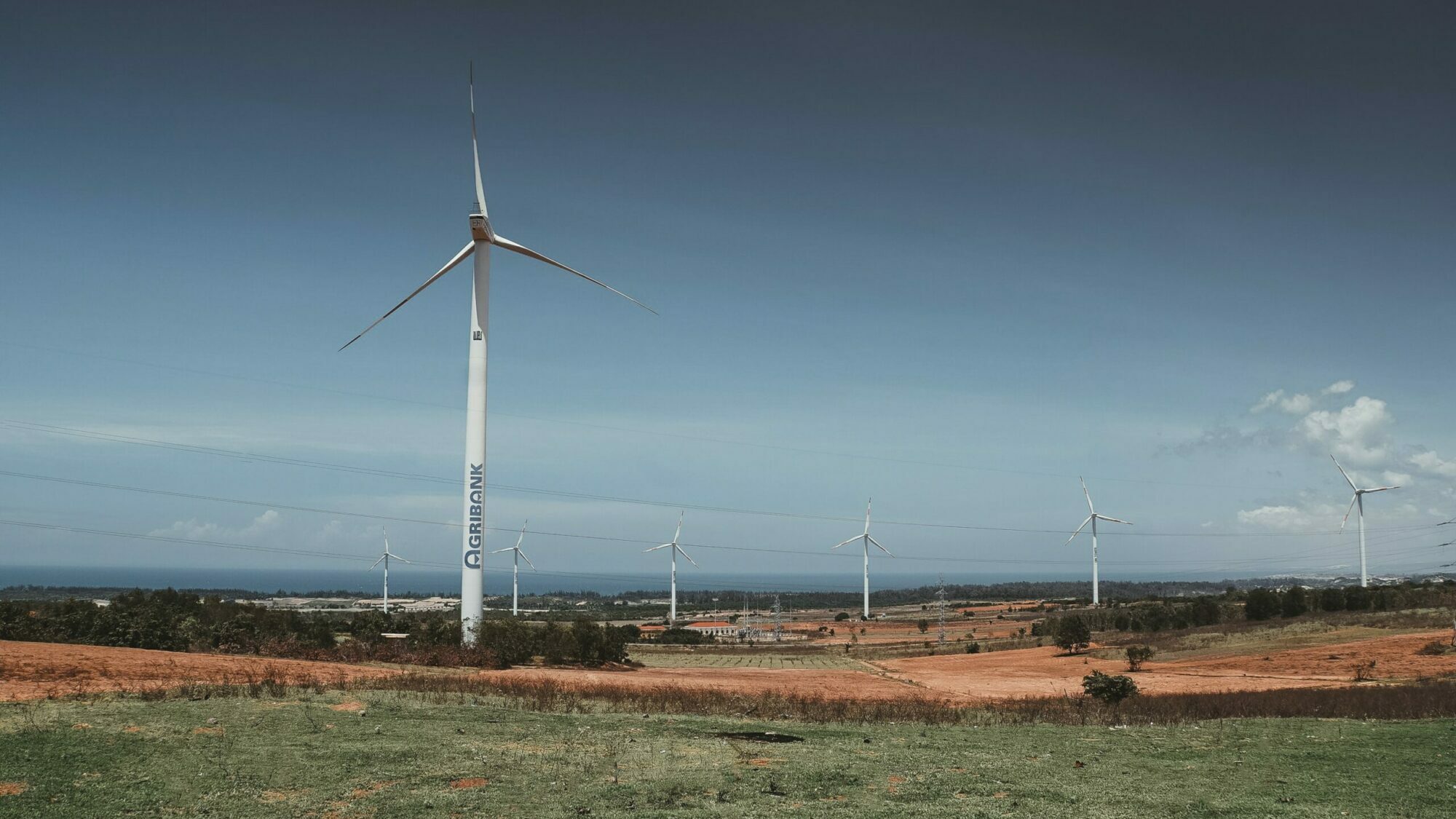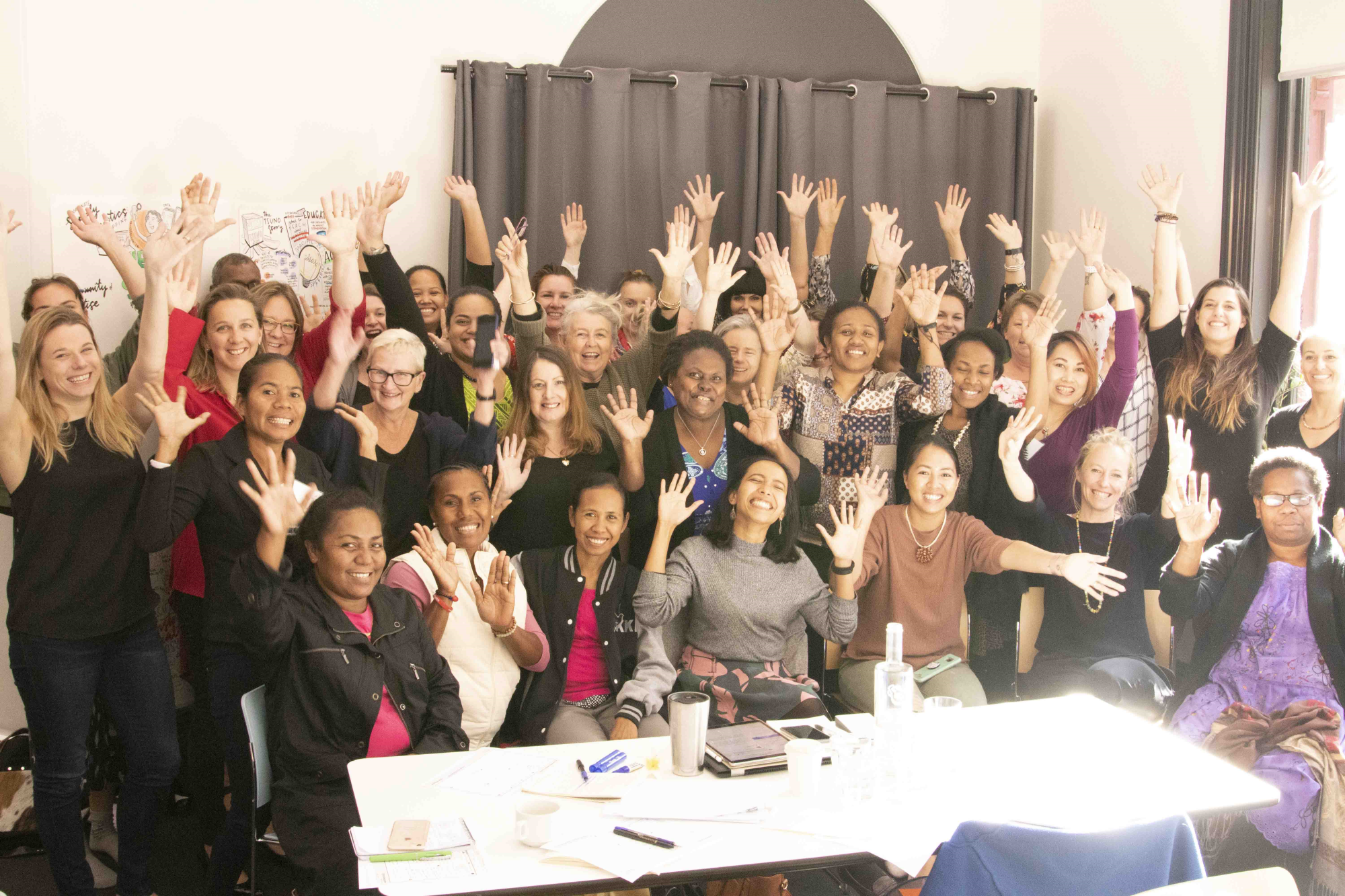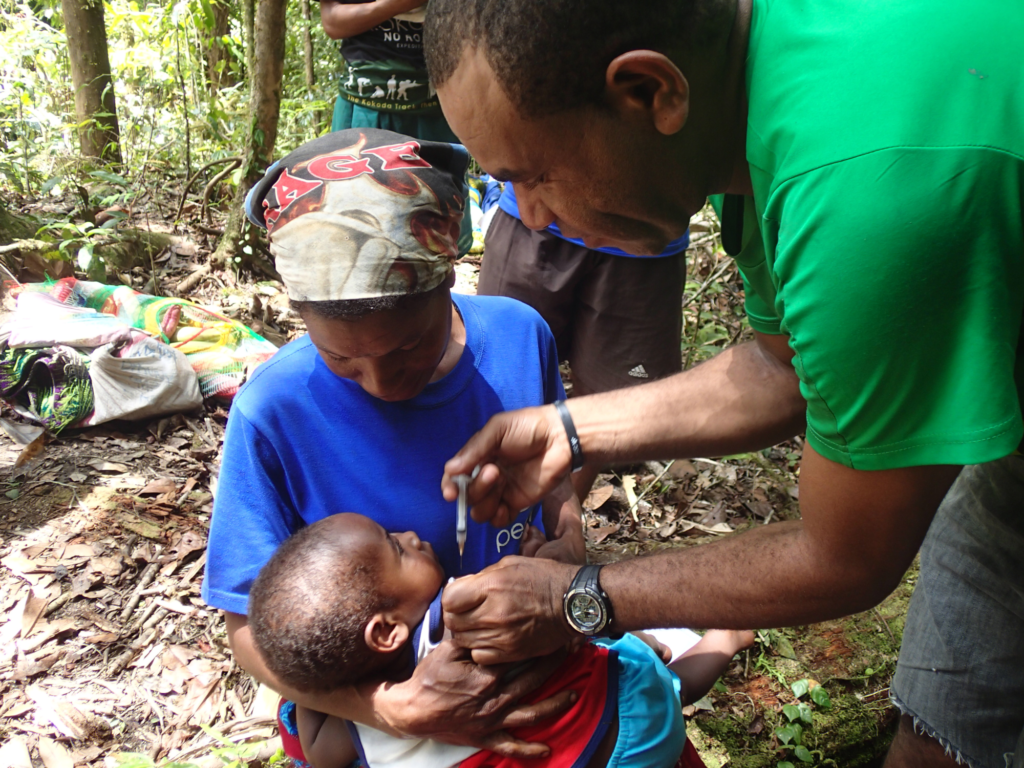

How to invest so that women and girls in the Pacific can access quality menstrual health products
Anne-Shirley can often be seen scouring the clothing racks at the second-hand warehouses in Port Moresby looking for the right type of fabrics to make her reusable menstrual pads that she intends to sell to unemployed women living in urban areas. As her business grows she would also like to target other markets such as school girls. She created her business, Queens Pads to provide these women and girls with safe, healthy and affordable menstrual health products as their alternatives are often homemade cloths pieces and other materials. Queens Pads uses a strong quality control measure to make sure a high standard of product is produced which is supportive of health and environmental considerations at each stage of the production process. Using newly purchased fabrics to make the pads is a future option for Queens Pads but access to affordable fabrics is hard to come by in Port Moresby and alternative materials like sheets or towels would push their price point up too high for their urban area customers. The second-hand clothing stores provide high-quality and often new materials but at much cheaper prices, keeping her pads at an affordable price.
Samoan-based menstrual product producers Angelica and Isabell have called their business Mana Care. Fabric for them is also impossible to source locally so they travel to New Zealand and Australia to buy their fabrics. Due to the range available in these areas they have been able to position their business around the materials they buy with the designs reflecting their brand. They choose materials that will appeal to women and add a little joy to their menstrual cycle, such as their limited-edition Wonder Woman range which sold out in two weeks. These materials, though, come at a price, and so their buyers have been traditionally women who can afford their pads. Recently the founders of Mana Care have been able to develop other more affordable products to lower-income women, although the fabric and material challenges still remain, making these products inaccessible to most women in rural communities
These two organisations are not alone in their supply-chain challenges, the other 28 Pacific-based menstrual health product producers that attended Pacific RISE’s Menstrual Health Management workshop face similar obstacles around their abilities to purchase materials locally and at a reasonable price point. Analysis of the production costs of this menstrual health producer community indicates that materials represent 70–90% of their unit costs (other costs like labour and packaging are very low by comparison). All of the producers are trying to source similar materials being cotton textiles, polyurethane laminate and button snaps. To get the materials they need to make their products, some producers ask friends to bring them in suitcases from Australia or other locations; others freight them in at an exorbitant cost; some go to the local homewares stores and buy sheets and towels; while the Queens Pads team spends hours and hours in football sized second-hand stores sourcing the fabrics.
These businesses also have other things in common apart from their inability to access affordable materials. They all have a strong focus and drive to find locally appropriate, accessible and affordable menstrual health products for Pacific women and girls. They have established their organisations due to the challenges facing women and girls as outlined in the Australian Government funded Last Taboo Research including girls and women with less access to money (such as the unemployed, or those on low income and adolescent girls reliant on parents) face affordability challenges and may rely on home-made solutions (of variable efficacy) to manage their menstruation, more broadly, there is a lack of available products in rural areas, with cheaper, poor quality brands being more common. Across the board, re-usable products generated interest among women and girls.
After meeting with these businesses, Pacific RISE commissioned the Criterion Institute to identify if there was an impact investment opportunity to support these menstrual health product producers and improve access to locally driven, affordable and sustainable menstrual health management products for Pacific women and girls.
Impact investments are investments of capital ‘made into companies, organisations, and funds with the intention to generate a measurable, beneficial social or environmental impact alongside a financial return.’ The global impact investing market is now worth US$500 billion, according to new research that advocates say highlights the need for future growth across the responsible investing landscape. Menstrual health is an attractive area for investors, particularly social impact investors, gender lens investors, investors with a focus on young women and girls, and public and donor agencies in the Pacific.
“What businesses like Queens Pads need is investment in the ecosystem in which they operate to help overcome some of their other challenges like a dispersed population over wide geographical locations, weak transportation links that impact their supply chains consistency and of course to source appropriately priced materials locally.” says Joy Anderson from the Criterion Institute.
Trade finance is a tool that can make it easier for importers and exporters to transact business and introduces a third-party to transactions to remove payment and supply risk. This would allow the businesses to collectively bargain for cheaper prices for materials and would allow them to access capital to purchase material in bulk which can reduce the price of their products and allows them to pass those savings onto women in the Pacific.
Criterion is currently testing a proposal to structure a trade finance deal – pooling capital into a financial intermediary who would then offer a set of different trade finance vehicles to meet the needs of menstrual health enterprises. These could include but are not limited to trade credit insurance, pre-shipment capital, factoring, export credit etc.
‘As a whole, the menstrual health market in the Pacific seems small compared to other regions; however, solving for this could have a considerable impact,’ continues Joy.
And investors agree. Having tested this with a number of local and global investors, there is already enough interest from investors to fund this initiative. Considering the large number of informal markets in which community-based and/or female-led enterprises play a central role, structuring a trade finance deal to meet their early financing needs could have significant impacts on their scalability.
Read more about our international development solutions.



